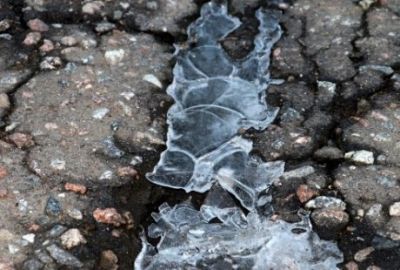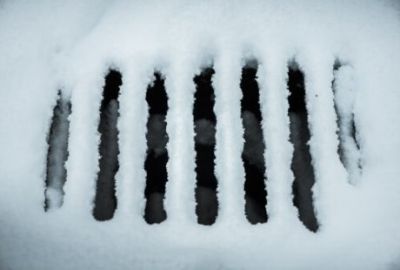REPAIR ALL CRACKS AND POTHOLES
 The way you take care of the pavement today is directly related to its appearance and performance in the upcoming spring. Examine the surface before it is completely covered in snow. By doing so, you will be able to identify troublesome spots. All potholes tend to get bigger and bigger as time goes by. Therefore, it is of utmost importance to handle them properly and in time. If the pavement suffers from such issues, it is likely to wreak havoc on car tires and compromise the sub-base integrity. When water seeps underneath it during the freeze-thaw cycle, the consequences may be devastating – huge fractures, giant potholes, and alligator cracking. Timely check-ups and repairs will save you more money in the long run.
The way you take care of the pavement today is directly related to its appearance and performance in the upcoming spring. Examine the surface before it is completely covered in snow. By doing so, you will be able to identify troublesome spots. All potholes tend to get bigger and bigger as time goes by. Therefore, it is of utmost importance to handle them properly and in time. If the pavement suffers from such issues, it is likely to wreak havoc on car tires and compromise the sub-base integrity. When water seeps underneath it during the freeze-thaw cycle, the consequences may be devastating – huge fractures, giant potholes, and alligator cracking. Timely check-ups and repairs will save you more money in the long run.APPLY SEALCOATING AGENTS
Apart from pothole elimination, it is recommended to have a parking lot coated. Asphalt sealers are used to protect pavement against moisture penetration, oxidation, erosion, and ultraviolet rays. Also, such agents make your driveway unsusceptible to detrimental gas and oil effects while minimizing its deterioration. If you are concerned about the appearance of the parking lot, it is a sealer that will turn it into an eye-pleasing “invitation” to your retail store, shopping center, office, or any other business. Keep in mind that the condition of the parking lot forms the first impression on your potential customers. In addition to asphalt life expectancy increase, sealcoating will also add to how it looks. Transforming the run-of-the-mill pavement into a real head turner may become a useful marketing tool and well worth the investment.KEEP THE AREA FREE FROM DEBRIS
Another step for pre-winter asphalt maintenance is junk removal. Regardless of the size, debris can take a toll on the surface and lead to crack development, especially when being frozen. When it comes to snow plowing, heaps of different stuff scattered all over the area can stand in the way. That is why you should make sure your commercial parking lot is not full of debris.CHECK THE DRAINAGE SYSTEM
 Heavy rain and snowfall frequently cause business slowdown. Uneven pavement surface, along with clogged drains and manholes, may result in undesired pooling of water. When it freezes over, a driveway becomes impassable to cars and pedestrians. Fixing this problem will allow you to avoid slipping while providing your potential customers with safe and comfortable passage. Before winter comes, make sure your drainage system is properly functioning to move unwanted water and ice away from the pavement. Alternatively, you can apply porous asphalt pavements, which are deemed to be the perfect choice for parking lots. Their primary benefit is allowing water to penetrate below a sub-base right to the ground. Being the ideal water and ice management solution, the porous asphalt eliminates the risk of pooling. Such a drainage system allows a sub-base to retain its integrity. What is more, these asphalt pavements are designed to last many years while keeping their draining effects and appearance at the highest level.
Heavy rain and snowfall frequently cause business slowdown. Uneven pavement surface, along with clogged drains and manholes, may result in undesired pooling of water. When it freezes over, a driveway becomes impassable to cars and pedestrians. Fixing this problem will allow you to avoid slipping while providing your potential customers with safe and comfortable passage. Before winter comes, make sure your drainage system is properly functioning to move unwanted water and ice away from the pavement. Alternatively, you can apply porous asphalt pavements, which are deemed to be the perfect choice for parking lots. Their primary benefit is allowing water to penetrate below a sub-base right to the ground. Being the ideal water and ice management solution, the porous asphalt eliminates the risk of pooling. Such a drainage system allows a sub-base to retain its integrity. What is more, these asphalt pavements are designed to last many years while keeping their draining effects and appearance at the highest level.
